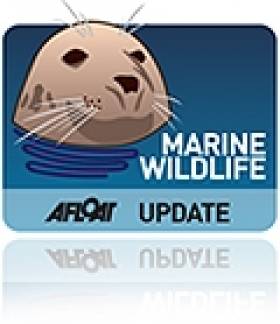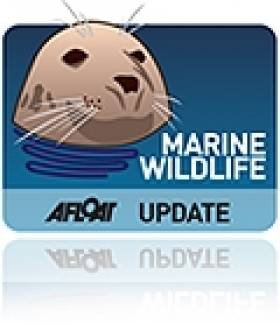Displaying items by tag: field trips
New Season of Summer Whale Watching Courses on Cape Clear
#MARINE WILDLIFE - The Irish Whale and Dolphin Group (IWDG) has announced another series of its popular whale watching courses on Cape Clear in West Cork this summer.
The courses cater for adults keen to learn more about whales and dolphins in Irish waters and how to observe, record and identify them. They will feature a mixture of workshops and field trips, including cliff and boat-based whale watches.
Three weekend courses will take place on 25-27 May, 20-22 July and 7-9 September, led by IWDG sightings co-ordinator Pádraig Whooley. All are open to IWDG members and non-members alike, but places are limited to 20 places each weekend on a first-come-first-served basis.
Admission is €70 for IWDG members (€90 for non-members), with a non-refundable deposit of €25 required. Please note that this fee does not cover transport to Cape Clear, food or accomodation (which is limited in high summer) or any boat trips. As the itinerary will be weather-dependant, some flexibility will be required.
More information on the weekends and booking details are available at the IWDG website HERE.
In other IWDG news, the group has secured another grant from the Island Foundation to continue its humpback whale research in Cape Verde this spring and summer.
A shore-based team will be stationed in Boa Vista in an area that is "possibly the most important site for breeding humbacks in the entire northeast Atlantic".
Summer Whale Watching Courses on Cape Clear
The Irish Whale and Dolphin Group (IWDG) is running a new series of its popular whale watching courses on Cape Clear in Co Cork this summer.
The first weekend course from 8-10 July 2011 caters for adults keen to learn more about whales and dolphins in Irish waters and how to observe, record and identify them. It will feature a mixture of workshops and field trips, including cliff and boat-based whale watches.
Admission for this course is €70 for IWDG members (€90 for non-members). Please note that this fee does not cover transport to Cape Clear, food or accomodation, or any boat trips. As the itinerary will be weather-dependant, some flexibility will be required.
Places are also limited to 20 per course on a first-come-first-served basis. Booking requires a non-refundable deposits of €25 to be paid by cheque or postal order to the IWDG.
For bookings and enquiries contact IWDG sighting co-ordinator Pádraig Whooley at [email protected] or 023 883 8761.






























































